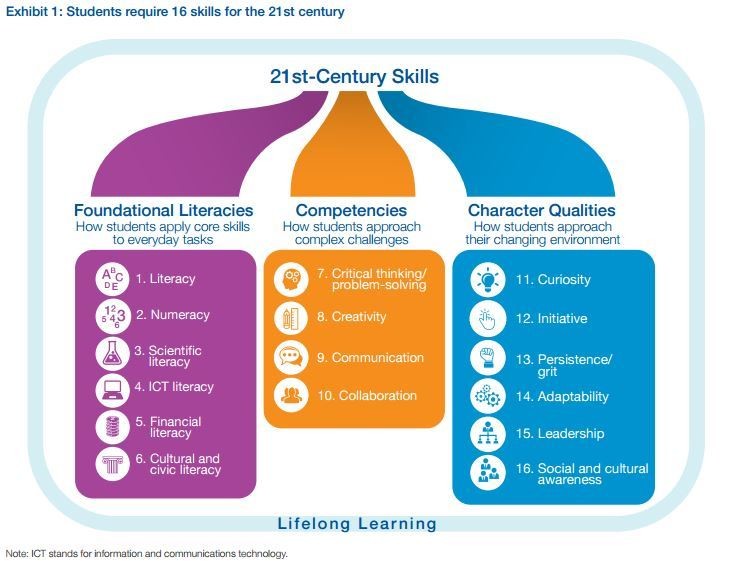Ten 21st-century skills every student needs

Don't get left on the shelf ... brush up on your collaboration, communication and problem-solving skills Image: REUTERS/Eric Gaillard

Get involved with our crowdsourced digital platform to deliver impact at scale
Stay up to date:
Future of Work
The gap between the skills people learn and the skills people need is becoming more obvious, as traditional learning falls short of equipping students with the knowledge they need to thrive, according to the World Economic Forum report New Vision for Education: Fostering Social and Emotional Learning Through Technology.
Today's job candidates must be able to collaborate, communicate and solve problems – skills developed mainly through social and emotional learning (SEL). Combined with traditional skills, this social and emotional proficiency will equip students to succeed in the evolving digital economy.
21st-century skills for students
An analysis of 213 studies showed that students who received SEL instruction had achievement scores that averaged 11 percentile points higher than those who did not. And SEL potentially leads to long-term benefits such as higher rates of employment and educational fulfillment.
Good leadership skills as well as curiosity are also important for students to learn for their future jobs.

Another Forum report, The Future of Jobs, launched during the Annual Meeting 2016 in Davos, looked at the employment, skills and workforce strategy for the future.
The report asked chief human resources and strategy officers from leading global employers what the current shifts mean, specifically for employment, skills and recruitment across industries and geographies.

Policy-makers, educators, parents, businesses, researchers, technology developers, investors and NGOs can together ensure that development of social and emotional skills becomes a shared goal and competency of education systems everywhere.
Don't miss any update on this topic
Create a free account and access your personalized content collection with our latest publications and analyses.
License and Republishing
World Economic Forum articles may be republished in accordance with the Creative Commons Attribution-NonCommercial-NoDerivatives 4.0 International Public License, and in accordance with our Terms of Use.
The views expressed in this article are those of the author alone and not the World Economic Forum.
The Agenda Weekly
A weekly update of the most important issues driving the global agenda
You can unsubscribe at any time using the link in our emails. For more details, review our privacy policy.
More on Future of WorkSee all
Kate Whiting
April 17, 2024
Andrea Willige
February 29, 2024
Kara Baskin
February 22, 2024







